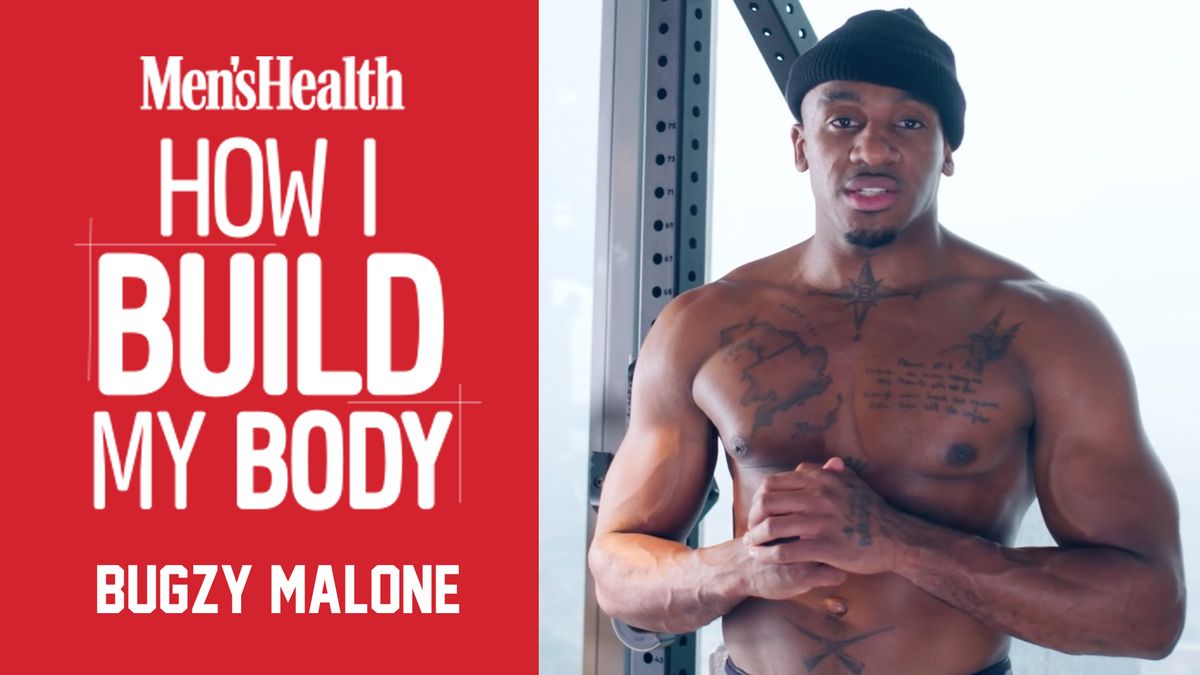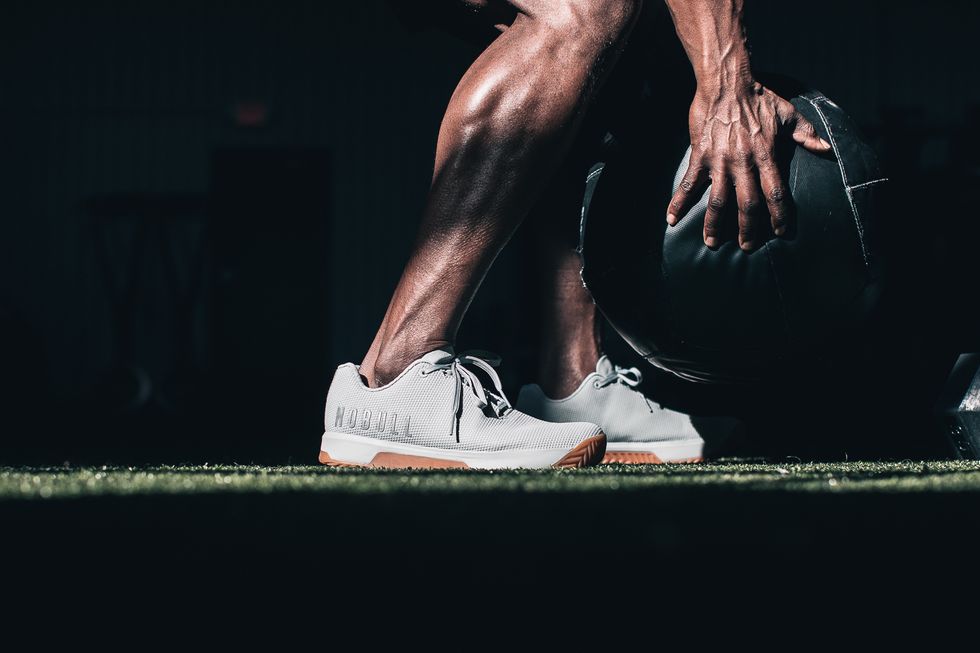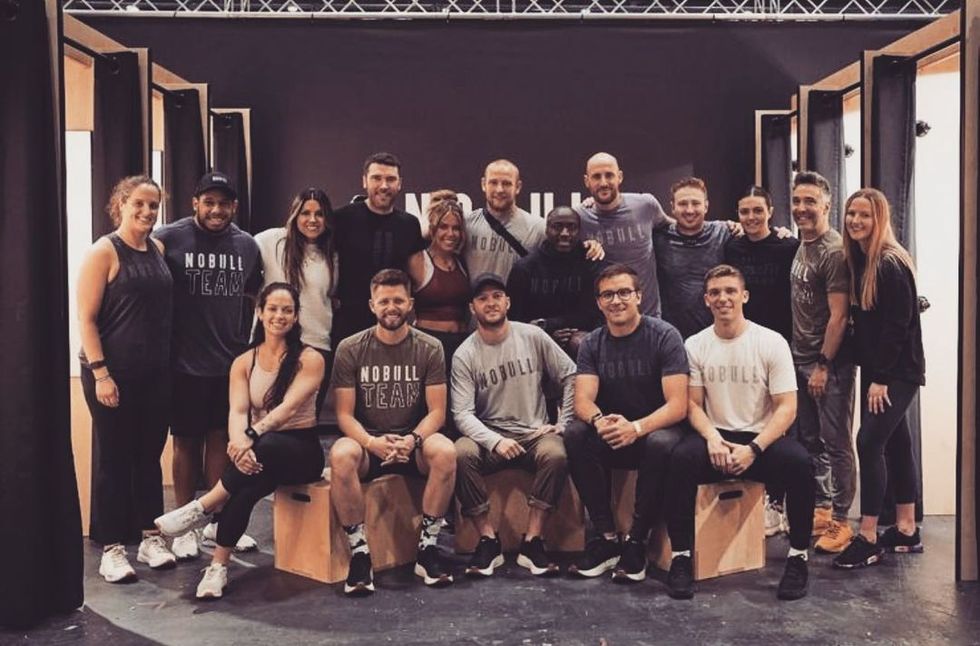Men’s Health: Let’s start with how you got into the business of sport retail in the first place.
Sam Kitching: It’ a running joke with some of my colleagues and close friends that I’ve been in retail for ever. My first job was at a specialty running shop called ‘Up And Running’. I was a runner myself, did cross-country at school, and then at university, I did athletics and cross-country. But at that time, I always worked at this running shop. I really just instantly fell in love with it. The internet did exist, but it was not the priority in terms of retail revenues. It was all about experience and Up And Running got its name from the on-site gait analysis we did. You could go in, spend 20-30 minutes with one of the team, enjoy the experience and then hopefully leave being more educated but also with the right product.
It was really enjoyable to kind of share that experience with the customer and knowledge share. And for me, being a running enthusiast, it was perfect. I got to kind of work with all these amazing brands, like Nike, Adidas, Saucony, Mizuno, and all the really niche brands. I was very fortunate that that was my first job. I just loved it
I then went and studied computer science at university. My Dad actually owned and run his own business in that sphere and he was desperate for me to continue the computer science of side of things. I was applying for my placement year when the running shop asked if I was interested in a job at their head office. I went back and forth with my dad but ended up taking it. It was a family-owned business so I got a lot of experience with different roles and responsibilities very early on. They could see I was switched on and that I understood what the customer wanted.
At the age of 21, they gave me an area management role, where I was responsible for 12 stores. Then was doing buying and got more stores, so I really had a lot of experience in a very short period of time! I didn’t actually finish uni. When I was in my fourth year, a contact from running, Dan Williams, came to me with a business idea. That’s when my entrepreneurial side kicked in.
Was that when WIT started?
No, it was a customer loyalty scheme app called Zapped. It was geolocation technology, where you check in to your favourite coffee shop, bar or restaurant, whatever it may be, and you collect points. Once you collect a certain amount, you get rewards. We took the original stamp card and use this technology to digitalise it. I gave up university, to my parents disappointment and focused on that. I loved it. I just got this understanding of what it felt like to be a business owner and entrepreneur, and is gave me that drive and confidence.
We made some mistakes. One was that we didn’t start the business in Leeds, rather than London. The audience just wasn’t big enough. Another was that we did what most entrepreneurs do to start with and try and raise money on the back of something that didn’t really exist, so we focused too much on that, instead of running the business.
I was so grateful to Dan for giving me the opportunity, but after two-three years, we just weren’t getting enough traction. While we were doing that, though, is when Dan’s passion for CrossFit came about. He was doing it on his lunch breaks telling me all about things like rope climbs and Olympic lifting and I thought it was just ridiculous. When we closed up the app it was a case of having to get real jobs again, so I made the move to London to get back into retail. I started working for the Intersport group. They have 5000 stores around the world and I worked for them as the GM in London.
I was working with all the big brands and I was noticing a shift into training. Brands like Nike were actually categorising training as a sport and manufacturing a specific product that’s been built for the training consumer. Me and Dan came back together and he saw there was a huge opportunity within CrossFit. The CrossFit consumer is obsessed with product with apparel and footwear. I could bring my retail experience and relationships with Nike, Adidas, and Reebok and the rest – Dan had an understanding of the community.
I had this need to build something myself and tie that into something I was really passionate about, which was sports retail. So it was the perfect match. When we started, we actually rented a basement of the Intersport that I worked in. It had this ‘Aladdin’s cave’ feel, I guess, like you walk down there and you smelled like the rubber matting. We had lifting platforms and the feeling that you would use the apparel and footwear you’re about to buy. We wanted to bring all of these amazing brands together and be a multi-brand retailer in a very authentic, credible way and really elevate what physical retail is.
When did you come across NOBULL?
When we started, we knew that 70-80% of our revenue was going to come from Nike, Reebok, Adidas, Under Armour – the big brands. But we also knew that it was important to our to bring smaller brands in. So that’s basically how we found NOBULL. A friend of ours, a guy called James Wright was very well connected with the community and he asked if we were aware of this brand who had just launched a social media page. You couldn’t buy any product yet but the few prototypes that were on their grid looked great.
Dan wrote to Marcus, the founder. We convinced him to come over to London and spend some time with us and we convinced him to basically be his exclusive partner. We were going to drive their business in Europe and I think Marcus appreciated that we were going to give them credibility with regards to placing that product alongside Nike, Reebok etc. From that day it felt like we were all building WIT and NOBULL together in parallel. We always had a genuinely close relationship. Then in about 2018, they just took off like a rocket ship.
One of the cool things was the way that they launched products. They had these midnight drops. They didn’t have a load of inventory but they would launch at midnight to allow the loyal customers to get up and get it. On Black Friday, instead of having a discount or sale like any other brand would, they would create an all-black collection. In the first few years, again, we didn’t get a huge amount of inventory, we didn’t get a huge amount of inventory at WIT. And it just sold out instantly. But then in 2018, they built more inventory. What was crazy was that even though we had significantly more stock for Black Friday, it all sold out instantly, too. They were outselling Reebok and Nike consistently and doing more with regards to the CrossFit community than any other brand. There was a huge following, a huge appreciation for the product and a huge appreciation for the brand.
Then in 2020, they become the headline sponsor of the CrossFit Games. I was still working closely with them and seeing how they were building market share and overtaking brands like Reebox. I was just kind of in awe.
Is that when you made the move?
Marcus contacted me in about 2020 and asked if I wanted to make our relationship official. He wanted me to come on and run the European business, as the majority of the revenue was coming out of the US. I thought about it and said “Thanks. But no thanks.” It was such a compliment, obviously. But WIT was doing well.
Then COVID hit and I had a huge amount of time to think, as did everyone. I realised that life is short and I still had a huge amount to learn. I’d always dreamed about working for a brand that was direct to consumer, so over that period it just all started to make sense. I felt like I wanted to know what the next chapter was going to be, how I could progress as an individual and as a leader. I felt like the only way to do that, was to surround myself with like-minded people.
We have this code of conduct at NOBULL and every single time I read it, I think ‘that’s the reason I joined’. It’s as simple as that. We don’t try and tell people that our product is going to make them faster or stronger – at the end of the day the person putting in the work and not believing in excuses is going to do that. NOBULL is there to support them in that.
With such a huge share of the US market, what is your focus for growing NOBULL in Europe?
The grassroots work is really, really important to me. I think it’s so important for us to go into the CrossFit community, actually listen to the CrossFit community here in Europe and just kind of engage with them and incorporate their beliefs into what we’re doing. I think it starts there. We’ve got a lot of work to get NOBULL out there and make people even aware of the brand. And I feel like that starts in the gym. That starts in our local boxes. So we’re making a conscious effort to go around, training with coaches and with athletes and with everyday members who are just real people. We’ll be very focused on CrossFit because that’s where NOBIL came from – it was born and built out of the CrossFit community. And that’s where it’s going start for us in Europe. I want to do activations and events where it’s genuinely meaningful to the person experiencing it. We’ll build up from the grassroots stuff.
NOBULL has signed many of the top elite athletes in the US. Is that a tactic for Europe, too?
100%. At end of the day, we are all definitely inspired by those individuals. And those people just do things that amaze us and we’re in awe of the amount of work and commitment. Again, it all comes back to this being a brand for people who work hard and don’t believe in excuses. People like Justin (Medeiros) and Tia (Toomey) obviously represent that. I feel like there are some amazing athletes here in Europe that do, too. We work with Katrin (Davidsdottir), who is now based over here in Iceland, and we have Elliot and Jamie Simmonds. We’ll continue to build up that roster of athletes. We understand for our community, that’s really inspiring and that it’s going to help us develop as individuals. We can continue to compete with ourselves. But we can also be inspired by others. They complement one another.
Do you have the sense that people hunger for more physical interaction since lockdown?
I think it’s just so important. Pre-COVID, there were a lot of brands in our space saying ‘digital-first!’, which I understand from a revenue perspective. But what we all went through as humans, I feel we came out really appreciating the importance of physical interaction. I think that we, as a brand, should really take that responsibility and run with it.
From watching people on a treadmill aged 16, all the way through WIT and now NOBULL, would you say that physical experiences are your thing?
I think you’ve nailed it. One thing I want to be known for in the industry, is just really helping physical activations be a big part of overall brand strategy. When we go to a competition and have a stand, we want to do it at scale. As a brand, we don’t want to do things half-heartedly – we always want to be proud of our work. We are really excited also to be opening a space in Battersea Power Station, which is going to be a revolutionary space for NOBULL. It’s going to be a combination of a retail space, a community space a coffee shop – everything that brings people together and not necessarily be disappointed if they walk out without any product, as long as they’ve come and had a good experience and they’ve learned something. I would be proud of that.




